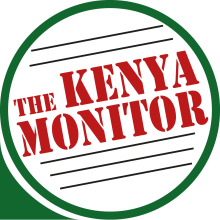Concerns over internet freedoms in Kenya can be broadly traced to larger rights and freedoms enjoyed by Kenyans in the 2010 Constitution. The Constitution has a progressive Bill of Rights which among others guarantees rights to privacy, freedom of media, freedom of information and freedom of expression among others. Prior to this Constitution, internet concerns in Kenya were largely about access.
Kenya’s internet growth has been synonymous with the worldwide growth of Information Communication and Technology (ICT) tools. Embracing ICT was seen as progressive in creating employment, reducing production costs, improving costs of service delivery and decentralization of services.
The history of the Internet in Kenya can be traced to 1994 when the African Regional Center for Computing (ARCC) was set up to offer full internet connectivity in the country through the support of the U.S. National Science Foundation. According to a paper by Nixon Muganda, submitted to the Department of Information Systems University of Cape Town dubbed ‘Internet Diffusion in Kenya and Its Determinants: A Longitudinal Analysis’, the liberalization of the sector also resulted in the creation of a National Task Force on electronic commerce in May 1999 with a view to providing an enabling environment for electronic trade in the country.
As a result, awareness of the potential of internet increased with many stakeholders indicating interests in applying Internet in their business. By 2000 it was estimated that the number of Internet users was around 30,000-50,000 with a total of 34 Internet Service Providers(ISPs).
According to the the latest Communications Authority of Kenya (CAK), statistics in the quarter under review October to December 2014 (Q2 FY 2014/15), the estimated number of internet users during the quarter increased to 26.1 million up from 23.2 million subscriptions reported last quarter. This marked an increase of 4.8 million subscriptions when compared to the same quarter of the previous year.
Consequently, the population with access to internet grew significantly to stand at 64.3 per 100 inhabitants up from last quarter’s figure of 57.1 per 100 inhabitants. The growth in internet access and usage could be attributed to the numerous data promotions carried out by the various service providers during the quarter. For instance, one of the service providers offered free social media access by post-paid and prepaid subscribers on their network.
This increase is supported largely by increase smartphone use. Majority of users primarily access social media sites on their phones, followed by 3G modems. Others use them through Terrestrial wireless data, Satellite Data, Fixed DSL Data, Fibre Optic and Fixed Cable Modems. This increase can be attributed to the abolishment of the 16 percent Value Added Tax (VAT) levied on mobile phones by the Government in 2009, which led to reduction of the cost of mobile phones. A reintroduction of the VAT in 2013 has not necessarily seen prices increase due to more cheaper phones availed by phone manufacturers while dealers have also devised ways of bringing in phones without paying taxes hence transferring the ‘benefit’ to consumers.
The internet is seen as providing information which enables the realization of growth and development in various sectors. This is through availing information that can be accessed and by anyone globally. For Kenya, worldwide narratives inform its challenges and opportunities that various individuals and organization surmount in their daily lives.
Telling these narratives is Kenya’s contemporary way of utilizing the internet as a tool of communication. Previously concerns by Kenyans were about access to the internet. This was reduced by the launch of fibre optic cable in 2009. Its distribution across the country continues to enable more Kenyans access it while areas with good internet, largely towns shift to fast and reliable internet. Today, most of the towns in Kenya have access to the internet either through Local Access Network portals of 3G modems in additions to data provided by telecommunications companies.
The degree of internet freedom can be correlated with the degree that a country enjoys civil liberties and political freedoms, argues a report dubbed ‘The Internet Legislative and Policy Environment in Kenya’ by the Kenya Human Rights Commission (KHRC) published in January 2014. Internet freedoms in Kenya have largely been about efforts by government to clump down through arrests, intimidation and prosecution of Kenyans using various social media and blogging sites. No time has this been evident than in the past four years, especially the two under the current government.
Blogger Robert Alai stands out as one person who has had several legal problems over his use or alleged misuse of internet. In August 2012, was arrested, detained and charged in court for an altercation with the then Government Spokesman Alfred Mutua. Alai had stated through his social media accounts that Mutua ordered the murders of Oscar Kin’gara and Paul Oulu, two activists who were brutally assassinated on Waiyaki way, Nairobi on March 5, 2005. He was charged under section 29 of the Kenya Information and Communication Act, 2009, for sending abusive and annoying messages.
In March 2013, the blogger was summoned and questioned by detectives after a series of tweets regarding Francis Kimemia, the then head of Civil Service and current Secretary to the Cabinet and later charged in court for causing annoyance to Mr. Kimemia.
In May 2013, the same blogger was charged under the National Cohesion and Integration Act with hate speech
intended to stir ethnic tensions between members of the Kalenjin and Luo based on one of his posts on the popular social networking site Facebook.
In May 2013, Alai was charged under Section 29 of the Kenya Information and Communication Act for posting annoying tweets about William Oduol, a local politician. The blogger is currently out on bail, pending the determination of these matters by the Courts.
In July 2013, Betty Waitherero, a blogger, upon posting an article on her blog about the Jubilee Government, the then Government Spokesman Mr. Muthui Kariuki who was also mentioned in the article is alleged to have called the blogger’s father (a former workmate) and threatened to have the blogger arrested if she did not pull down the article and refrain from writing such pieces in the future. While the threats cannot be ascertained, the blog post was
subsequently taken down by the author.
In August 2013, another blogger, Wanjikũ Revolution Kenya’s Facebook profile was blocked for seven days and a post mentioning the Jubilee Government on her Facebook timeline was taken down by Facebook. She blamed Kenya Government operatives for the act stating that they were responsible for reporting her profile as violating Facebook community standards.
More recently in 2015, blogger Abraham Mutai and web developer Geoffrey Andare have had their freedoms threatened in one way or the other through use of the law. Mutai’s blog was pulled down while his twitter account also suspended for some hours. Other cases included Nancy Mbindalah and Allan Wadi.



This is understandable and that is certainly why it is
crucial that you might be thorough in gaining details about the sort
of bike to get. There are many people who prefer riding on cruiser bicycles to take
an exciting ride down the resort either with friends or alone.
The two of you go ahead to discuss the most crucial purchase your family will enjoy all day.
After the treatment a kid starts sharing stronger bond while using other family members.
The companies casually Electronic Health Record Software have understood the nerve of
modern medical care sector. Whether you are seeking a treatment for chronic pains or any hormonal imbalance, low
immunity, digestive disturbances, inflammation or adrenal imbalance, Highlands acupuncture offers all.
However, the upsetting facts are that using this large numbers, 46,200 Americans
have ended in car collisions and many 2. Sleek exterior lines that subtly swoop from front to rear whispers its incorporation of Hyundai’s
iconic Fluidic Sculpture design language while
functionality is well masked with the attractiveness of its elements.
In 2002, Fields had become the chairman from the Premier Automotive Group – the
company.
John Backus received the Turing Award in 1977, an IBM Fellowship (1987) and the Draper Prize (1993).
And it is especially suited to the presentations that contain a lot of pictures.
These are typically the requirements that must be met as a way to take into account the LMS.
Once started using, the user gradually grows reliance upon it and therefore
there is probing for it. (1) Dependency on drugs is a very complex but curable disorder that can affect brain function and
behavior. The very fundamental and primary goal of the professionals is to buy the detrimental body toxins out of your body, so your
drugs may be effective in struggling with the cravings and foreign substances.